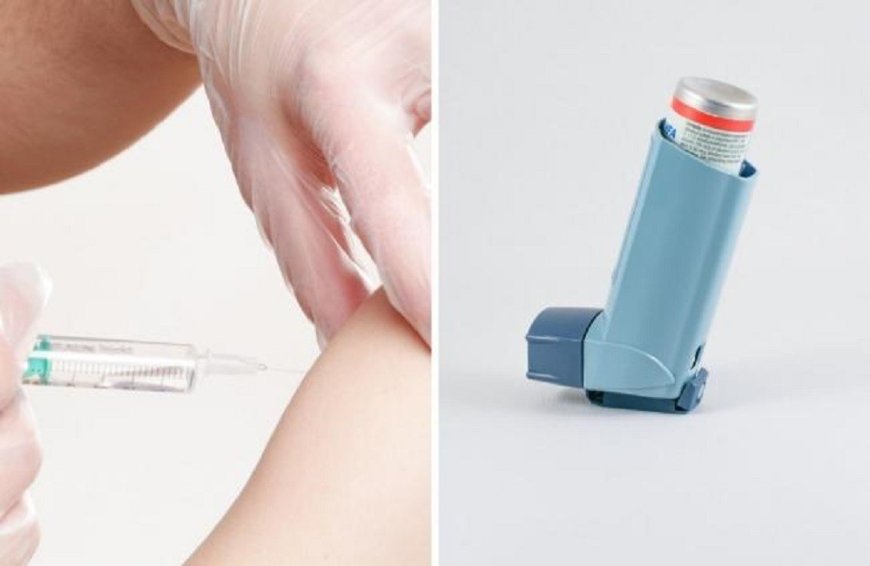The asthma vaccine has been shown to be effective in experiments on mice
shared the results in the journal Nature Communications. The asthma vaccine has been shown to be effective in experiments on mice.

French researchers have developed a vaccine against asthma, which causes the body to produce antibodies to inflammatory proteins that are excessively produced in the airways in this disease. The first experiments conducted on mice showed that it successfully prevents the development of allergic asthma and reduces its manifestations in animals with pre-existing disease. The scientists shared the results in the journal Nature Communications. The asthma vaccine has been shown to be effective in experiments on mice.
Why is this necessary?
Asthma is the most common lung disease, affecting more than 300 million people worldwide and killing at least 250,000 each year. The disease is characterized by inflammation in the lower respiratory tract, as a result of which the patient's respiratory function deteriorates. Patients may suffer from shortness of breath, coughing, a feeling of tightness in the chest and attacks of life-threatening bronchospasm, which can easily occur in response to stimuli such as allergens. There are no drugs that can cure asthma yet, although there are drugs that help keep the disease under control.
But for about 20 percent of asthmatics, available lung disease control methods are not effective. This can be partly explained by the significant variety of manifestations of the disease, which complicates the development of drugs against it. However, approximately half of patients with airway asthma have excessive production of two inflammatory molecules, interleukin-4 (IL-4) and interleukin-13 (IL-13). Blocking these compounds with a drug based on monoclonal antibodies helps reduce the symptoms of asthma. However, such drugs can cost thousands of dollars per dose, and you need to take them regularly. In the new work, scientists from the Pasteur Institute and Neovacs decided to create a more affordable treatment for asthma.
Must Read: artical-traumatic development: what exactly is it?
What do scientists suggest?
Researchers believe that an asthma vaccine that forces the body to make its own antibodies to IL-4 and IL-13 may be the best solution. They created a conjugate vaccine in which a stronger antigen is added to a weak antigen so that the body can better produce antibodies to a weak antigen. In the case of an asthma vaccine, the weak antigen is IL-4 and IL-13 molecules, to which a strong antigen in the form of a non-pathogenic mutated form of diphtheria toxin has been added to induce an immune response. The researchers tested the vaccine on experimental laboratory mice with asthma. But the effect was long-lasting: more than 60 percent of model animals, even a year after immunization, had antibodies capable of neutralizing interleukins. Experiments in which scientists have tried to provoke allergic asthma by exposure to strong allergens have shown that the vaccine can act both as a means of preventing asthma and as a therapeutic agent.
The authors hope that their vaccine will be more affordable for asthma patients than monoclonal antibody-based drugs. It can even be adapted to counteract other diseases, such as food allergies, atopic dermatitis and chronic urticaria. However, before this becomes possible, further experiments are needed to test the safety of long-term interleukin blockade and the effectiveness of the human approach.
During the spring-summer storm period, there are rare cases when asthma attacks occur en masse, sometimes in several hundred people at a time.a
